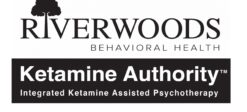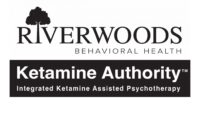
In exploring the potential of ketamine therapy for PTSD relief, we're faced with the question: does it truly offer a breakthrough in treatment? Our professional curiosity leads us to consider its rapid symptom relief and how it enhances emotional processing.
It's intriguing to notice its role in lowering dissociation barriers, promoting neural growth, and allowing for customizable treatment plans. The promise of sustained well-being beckons further exploration.
As we navigate through these aspects, we find ourselves at a crossroads, pondering the depth of ketamine therapy's impact on mental health. Join us as we uncover more about this innovative approach.
Rapid Symptom Relief
Ketamine therapy offers rapid symptom relief for individuals grappling with PTSD, providing hope for a quicker path to healing. We've seen firsthand how traditional treatments can sometimes take weeks or even months to begin showing results, leaving many feeling stuck in their trauma. However, ketamine's unique approach can significantly reduce symptoms like anxiety, depression, and flashbacks in a matter of hours or days, rather than the prolonged period often associated with other therapies.
This fast-acting treatment means we're not just waiting around for things to get better. Instead, we're taking proactive steps towards recovery, offering a much-needed lifeline to those who've felt like they're at the end of their rope. It's not just about the speed, though. The relief provided by ketamine can be a crucial turning point, offering a sense of normalcy and the ability to participate more fully in daily life and long-term therapy.
We're encouraged by the stories of resilience and recovery we've witnessed. While we understand ketamine therapy isn't a one-size-fits-all solution, its ability to quickly reduce symptoms of PTSD has been a game-changer for many, giving them the initial push needed to embark on a more comprehensive healing journey.
Enhances Emotional Processing
While providing rapid symptom relief, ketamine therapy also significantly enhances emotional processing, allowing individuals to engage more deeply with their therapeutic work. This ability to process emotions more effectively is crucial for those of us dealing with PTSD, as it often involves navigating a complex web of feelings that can be hard to understand and even harder to express. With ketamine therapy, we've found that our clients are better able to access and work through these emotions, leading to more meaningful therapeutic sessions.
We've observed a remarkable shift in how individuals approach their trauma-related emotions. Instead of being overwhelmed by them, they're able to view these feelings from a new perspective, facilitating a healing process that's both profound and lasting. This enhanced emotional processing doesn't just help during therapy sessions; it extends into our clients' daily lives, improving their overall well-being and relationships.
It's this deep dive into emotional exploration that sets ketamine therapy apart. By fostering a greater understanding of one's emotions, it empowers us to move forward from trauma, not just by managing symptoms, but by addressing the root of our emotional distress. This comprehensive approach to healing is why we champion ketamine therapy as a transformative tool for PTSD relief.
Lowers Dissociation Barriers
Beyond enhancing emotional processing, we've also discovered that ketamine therapy effectively lowers dissociation barriers, making it easier for individuals to remain present during their healing journey. This aspect is particularly vital for those of us grappling with PTSD, where dissociation acts as a frequent and formidable barrier to engagement in therapeutic processes and daily life. By reducing the tendency to dissociate, we're not just confronting symptoms; we're reclaiming our ability to connect with our surroundings and ourselves in meaningful ways.
We've found that this lowered barrier to dissociation fosters a more conducive environment for therapy. It enables us to face our traumas head-on, without the instinctive need to retreat into the safety of disconnection. This breakthrough is significant, as it represents a shift towards more effective and empowering healing methods. We're able to stay grounded in the present, which is essential for processing and integrating traumatic memories.
The impact of this can't be overstated. For many of us, the challenge has always been not just in facing our traumas but in simply being present enough to do so. Ketamine therapy offers a promising bridge over this gap, making it a pivotal tool in our journey towards recovery.
Promotes Neural Growth
In addition to its emotional benefits, we've found that ketamine therapy supports the growth of new neural connections in the brain. This aspect of treatment is particularly exciting for us because it offers a tangible, physical foundation for the mental health improvements we observe in our patients. The process, known scientifically as neurogenesis, is crucial for long-term healing and recovery from PTSD.
We've learned that traditional treatments for PTSD, while beneficial, don't always facilitate this kind of neural growth. Ketamine, on the other hand, has shown a unique ability to not just halt the negative symptoms but to actively repair and rejuvenate the brain's structure. This promotes a more profound and sustained recovery.
What's more, the enhancement of neural growth contributes to improved cognitive functions, such as memory and learning, which are often impaired in individuals suffering from PTSD. This improvement is key to helping our patients reintegrate into their daily lives more effectively and with greater resilience.
We're continually encouraged by the evidence suggesting that ketamine therapy not only alleviates the symptoms of PTSD but also works at a deeper, structural level to promote lasting mental health improvements through neural growth.
Customizable Treatment Plans
One of the key advantages of ketamine therapy for PTSD is our ability to tailor treatment plans to each patient's unique needs. Understanding that every person's journey with PTSD is distinct, we've developed a flexible approach that allows us to adjust dosages, frequency, and the delivery method of ketamine according to what works best for the individual.
We start with a comprehensive assessment of each patient's mental health history, current symptoms, and their overall physical health. This holistic view ensures we're not just addressing the symptoms of PTSD but also considering any underlying issues that could influence treatment success.
Based on this evaluation, we craft a personalized plan that may combine ketamine therapy with other supportive treatments like psychotherapy or counseling. This collaborative approach ensures that our patients aren't just receiving medication but are also being supported in ways that encourage healing and growth.
Our commitment to customizable treatment plans means we're continuously monitoring progress and adjusting as necessary. We're not just following a standard protocol; we're creating a pathway that acknowledges and respects the individuality of each person's experience with PTSD, ensuring that our treatment is as effective and responsive as possible.
Sustained Well-being
Achieving sustained well-being often requires ongoing support and adaptation of treatment strategies to meet evolving needs. When we talk about ketamine therapy for PTSD, it's not just about the immediate relief from symptoms. It's about building a foundation for long-term wellness. Ketamine's unique ability to foster neural growth and repair means that, with proper follow-up care, individuals can experience lasting change.
But sustaining well-being doesn't stop at the biochemical. It's also about integrating these experiences into our lives. We find that combining ketamine therapy with other supportive measures like psychotherapy, lifestyle adjustments, and mindfulness practices enhances the overall outcome. This holistic approach ensures that the benefits of ketamine therapy extend beyond the treatment sessions, helping individuals to build resilience against future stressors.
We've seen firsthand how this comprehensive strategy can transform lives. Patients often report not just a reduction in PTSD symptoms, but an overall improvement in their quality of life. They're better equipped to manage stress, connect with others, and find joy in their daily lives. It's a testament to the power of ketamine therapy when it's part of a broader, sustained approach to well-being.
Frequently Asked Questions
How Does Ketamine Therapy Compare With Traditional PTSD Medications in Terms of Side Effects and Long-Term Health Impacts?
We're exploring how ketamine therapy stacks up against conventional PTSD meds, specifically focusing on side effects and long-term health impacts. It seems ketamine might've fewer and less severe side effects, offering a promising alternative.
However, it's crucial to weigh both options carefully. While traditional medications have a longer track record, ketamine's innovative approach could potentially offer relief where others fall short. But it's essential to consider all factors, including long-term outcomes.
Are There Specific Types of PTSD or Trauma Experiences That Are More or Less Likely to Benefit From Ketamine Therapy?
We're exploring whether certain PTSD or trauma experiences respond better to ketamine therapy. It's intriguing to think that the effectiveness of this treatment might vary based on the nature of the trauma.
We're keen to understand if specific experiences might make someone more suited to ketamine therapy, suggesting a more personalized approach to PTSD treatment.
It's about finding the best fit for each individual's healing journey, considering the uniqueness of their experiences.
Can Ketamine Therapy Be Effectively Combined With Other Forms of Therapy, Such as Cognitive-Behavioral Therapy (Cbt) or Eye Movement Desensitization and Reprocessing (Emdr)?
We're exploring if combining ketamine therapy with other treatments, like CBT or EMDR, enhances recovery. It's intriguing because each method targets different aspects of healing.
While ketamine can provide rapid symptom relief, therapies like CBT and EMDR work on cognitive restructuring and processing traumatic memories. Integrating them could potentially offer a more comprehensive approach, addressing immediate symptoms while tackling the root causes of PTSD, leading to more sustainable recovery.
What Are the Legal and Accessibility Aspects of Ketamine Therapy for PTSD Relief in Different Regions or Countries?
We're looking into the legal and accessibility aspects of a particular therapy across various regions or countries. It's crucial for us to understand the regulatory landscape, as it greatly influences the availability of treatments.
Some places have embraced this therapy, making it more accessible, while others still have strict regulations. Our goal is to navigate these legalities to ensure we can offer the most effective support to those in need.
How Do Patients Typically Finance Ketamine Therapy Sessions, and Are There Insurance or Financial Aid Options Available to Help Cover the Costs?
We're often asked how patients can afford ketamine therapy sessions, given their cost. Many wonder if insurance or financial aid options are available to help shoulder the expense.
In our experience, coverage and aid vary widely by location and insurer. Some patients use health savings accounts, while others rely on payment plans offered by clinics. A few even find grants or nonprofit organizations that specifically assist with mental health treatment costs.
Conclusion
In conclusion, we've seen how ketamine therapy offers a promising pathway for PTSD relief. It quickly eases symptoms, enhances our emotional processing, and lowers dissociation barriers, making healing more accessible.
Moreover, by promoting neural growth, it paves the way for long-term recovery. With customizable treatment plans, it caters to our unique needs, ensuring sustained well-being.
We're hopeful that this innovative approach can be a game-changer for many of us seeking peace and recovery from PTSD.

